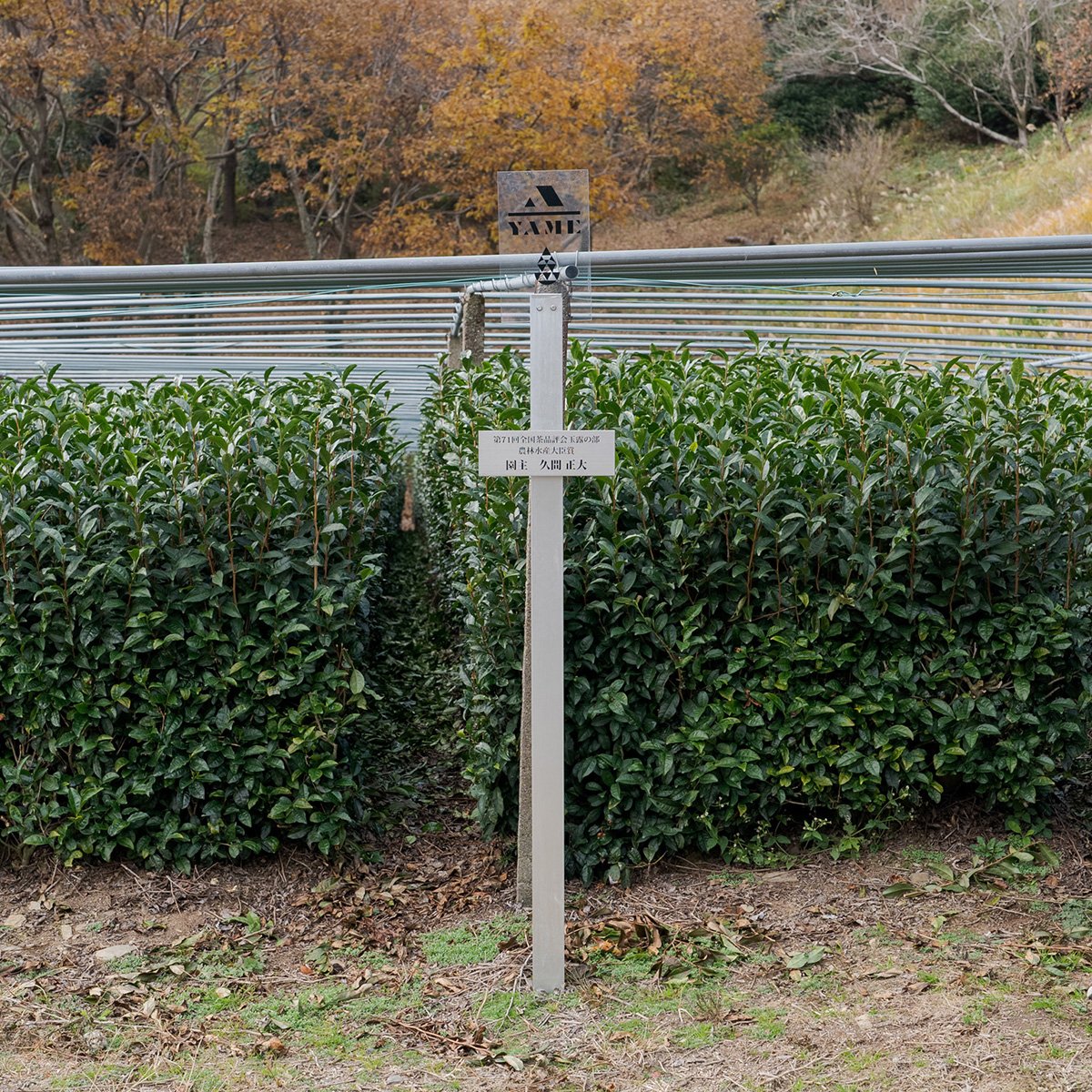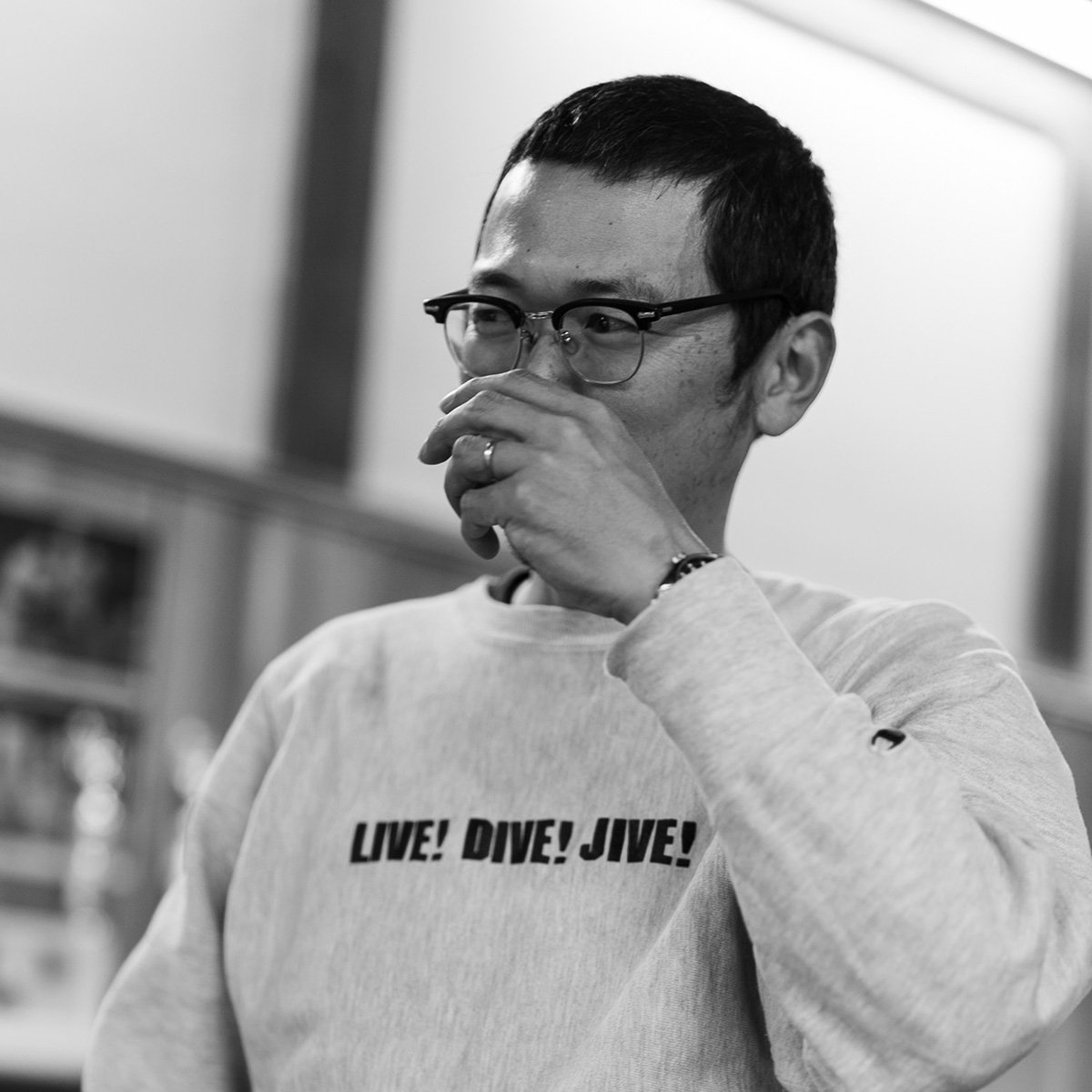Kumaさん Saemidori (さえみどり) Joyomachi Matcha 20g
Wild flower. Refreshing. Persimmon.
Traditionally rice-straw shaded Matcha with a wild botanical bouquet and thirst-quenching cool sweetness.
🏆 Awarded Producer
Recipient of the highly prestigious Minister of Agriculture, Forestry and Fisheries Prize (農林水産大臣賞.)
Proudly Stone-Milled & Fresh ground in Lawrenceville, NJ.
About this Matcha
Direct and vivid saturation that foams well. Aroma has a touch of Hii, a roasty aroma, that comes from an additional toasting step done in with Yamecha (八女茶), or tea from Yame, Fukuoka, Japan.
As dry power, the savory Nori scent is dominant, which relaxes into a sweet dried-fruit, nearly persmisson once water is added to the tea.
Texturally, the Matcha has a polished broad shoulder, which drapes like damp wool down the edges of the tongue. The flavor is fresh, green, botanical, and politely sweet - characterists of the Saemidori cultivar itself. It reminds me of wild forested honey.
When brewed as Usucha, the experience is refreshing and quenching, packing a lot of complexity. Part of the advantage of Honzu, or Rice straw shading, is the tea plants are kept cooler - thus growing slower with more complexity.
This concept of cooler tea plants, growing slower, is not exclusive to Matcha - but is also the case with the most legendary Chinese heirloom teas. Excess heat speeds up the plants metobolism, reducing the final complexity.
Honzu increases the quality of the Matcha, but at a substantial cost: the labor, time, and expenses to traditionally shade tea with natural materials is vast when compared to the black plastic tarps known as Kanreisha that are typically used.
-
Joyomachi gained substantial awareness following Kumaさん receiving the highly prestigious first place award in Japan’s National Tea Competition in the Gyokuro category in 2017.
While Yame is in general a newer tea growing region when compared to Uji, it’s become notable for it’s exceptionally sweet and rich tea.
Kumaさん tends to the tea plants, while his partner Nakataniさん oversees day to day operations.
The farm is located 350 meters above sea level, and originally did not have enough water supply, so a man-made lake was created at Joyomachi.
-
To make a fresh and smooth bowl of Usucha or Koicha, follow our brewing instructions.
-
Long-term Storage: Store unopened Ooika Matcha in the refrigerator. Consume within 6 months.
Room-Temp Short-term Storage: Store opened Ooika Matcha in a cool, dark place away from sunlight. Consume within 3 months.
Refrigerator Short-term Storage: Opened Matcha can be stored in the refrigerator to help maintain freshness, however, the Matcha is at risk of condensation when cooler than ambient air. For this reason, if you choose to store an opened Matcha in the refrigerator, be sure to take the Matcha you need and then immediately place it back in the refrigerator to minimize exposure to the warm air.
Ochairinikki (御茶入日記)
Category Green tea (お茶) |
Subcategory OISHITACHA (おおいしたちゃ) |
Grade Indigo (Beyond Ceremonial) |
Terroir Joyomachi, Yame, Fukuoka, Japan |
Vintage 2023 |
Cultivar Cultivar: Saemidori (さえみどり) |
Harvest Method 100% handpicked (手摘み, Tezumi) |
Shading Style TRADITIONAL RICE STRAW (ほんず, HONZU) |
Shading Duration 21 days |
Milling Ishi-Usu (石臼) Stone-Milled by Ooika |
Packaging Cold-stored, oxygen-free bag |
Use Usucha, Koicha |
Kumaさん
He brought me to a field, nestled in a fold of the mountain. Chestnut trees acted as a natural canopy.
Along the neatly trimmed row of bushes was a metal plaque, commemorating the farm’s 2017 National Tea Competition win.
Nakataniさん
The 4th generation granddaughter to a tea farmer, Nakataniさん helps over see the day to day direction of this legendary Yame farm.
Before the recent Red Tea renaissance (known as Koucha) in Japan, the duo started producing red tea about 16 years ago.
At at time, red tea in Japan was not popular, and would complain that their prices for red tea were too high. Today, people remark how affordable it is!
This is evidence of how much the market has changed.
Visiting Joyomachi
Crisp, clean air, surrounded by natural folliage and botanicals. A hill overlooks the field, dropping chestnuts that are picked up by the family of the farmers and turned into delictable sweets.
Few places in Japan capture that natural beautify of Joyomachi.


















